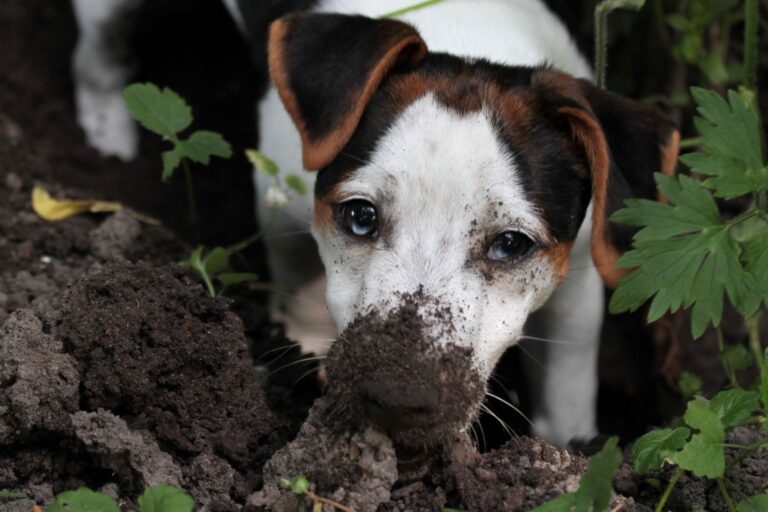The Ancient Instincts of Dogs
The behavior of dogs burying bones is deeply rooted in their ancestral lineage. To understand this action, one must look back at the wild predecessors of domestic dogs, such as wolves. In the wild, wolves buried food to save it for times when food was scarce. This strategic act of concealment was essential for survival, ensuring that food was available during periods of scarcity, harsh weather, or when hunting was unsuccessful.
Wolves, and other wild canids, developed complex survival instincts that have been passed down through generations. These instincts are hardwired into the DNA of modern-day dogs. Despite the domestication of dogs eliminating much of their need to fend for their survival, these ingrained behaviors persist. Burying bones or other objects is an evolutionary trait, a carryover from their ancestors who relied on such practices to ensure their survival.
Understanding the ancestral connection of dogs
Today's domestic dogs do not face the same environmental challenges as their ancestors, thanks to the provision of regular meals by their human companions. However, the survival instincts behind burying bones remain. The act can be seen as a form of instinctual insurance, dictating that it might be beneficial to save food for later consumption, even if the current need is not dire.
This persistence of ancestral behavior showcases the deep-rooted nature of these instincts, which continue to influence domestic dogs' actions. Despite living in comfortable homes and having never faced a shortage of meals, many dogs will still exhibit this behavior. Understanding this ancestral connection offers insight into why dogs engage in such seemingly unnecessary activities, highlighting the profound impact of their evolutionary past on contemporary behaviors.
Modern-Day Reasons for Burying Bones
While the behavior of burying bones is generally rooted in the ancient survival tactics of dogs, contemporary domestic dogs continue to exhibit this behavior for several reasons that differ from their wild ancestors. Understanding these motivations requires delving into the psychological and environmental factors that influence today's pet dogs.
Dogs Are Burying Bones From Boredom
One primary reason dogs in modern households may bury bones is due to boredom. When left alone for extended periods, dogs often seek activities to occupy their time. Burying a bone or a favorite toy becomes an engaging task that can help alleviate boredom. For instance, a dog left alone while its owners are at work might dig holes in the yard or find a secluded spot in the home to hide its possessions.
Dogs Are Burying Bones From Stress
Another significant factor is stress. Dogs, much like humans, can experience stress due to changes in their environment, the presence of unfamiliar animals, or even changes in household routines. Burying bones or toys in such situations can serve as a coping mechanism, providing a sense of control and security. For example, a dog might start burying items more frequently if a new pet or a baby is introduced into the household, perceiving the new addition as a potential threat.
Dogs Are Burying Bones To Protect Their Resources
Resource protection is another compelling reason behind this behavior. Dogs have an innate desire to safeguard their valuable items from perceived threats, whether these threats are real or imagined. In homes with multiple pets, a dog may feel the need to hide its favorite chew toy or bone to prevent other animals from finding it. Similarly, if a dog senses that food or play items are scarce, it might bury them as a precautionary measure.
Dogs Are Burying Bones From Psychological Comfort
Lastly, the act of burying provides psychological comfort to dogs. This behavior harks back to their ancestry, where hiding food ensured future sustenance. Modern dogs may not face the same survival challenges, but the instinct remains. Burying their possessions gives them a sense of security, knowing they have something saved for later.
How to Manage and Understand Your Dog’s Burying Habit
Managing and understanding your dog’s burying habits can greatly improve the pet-owner relationship and contribute to a harmonious living environment. Recognizing the root causes of this behavior is the first step toward effectively addressing it. Dogs often bury bones due to instinctual behaviors stemming from their wild ancestors, as a means of storing food for future consumption. However, other factors such as boredom, anxiety, and lack of mental stimulation can also play significant roles.
To manage this habit, enriching your dog's environment can make a substantial difference. Interactive toys, puzzle feeders, and increased playtime can keep your dog mentally and physically stimulated, reducing the tendency to bury items. Engaging in regular exercise and play sessions not only prevents boredom but also strengthens your bond with your pet. Offering a variety of activities can satisfy a dog’s instinctual needs in a constructive manner.
Positive Reinforcement For Managing Burying Behavior
Positive reinforcement is another effective strategy for managing burying behavior. Rewarding your dog when it plays with appropriate toys or follows guidance can reinforce desired behaviors. Additionally, training your dog to use specific digging areas can provide a controlled outlet for this natural instinct. Designating a section of your yard as a digging zone and burying toys or treats there can fulfill your dog's urge to dig without disrupting your entire garden.
It is crucial to observe and understand the individual needs and temperaments of your dog. Each dog is unique, and their reasons for burying bones may vary. By paying close attention to your pet’s behavior, you can tailor your approach to managing this habit more effectively. Whether through environmental enrichment, positive reinforcement, or designated digging areas, addressing your dog's burying habits humanely and efficiently requires a nuanced understanding of your furry companion. This not only solves the problem but also ensures your dog remains happy and healthy.





Comments